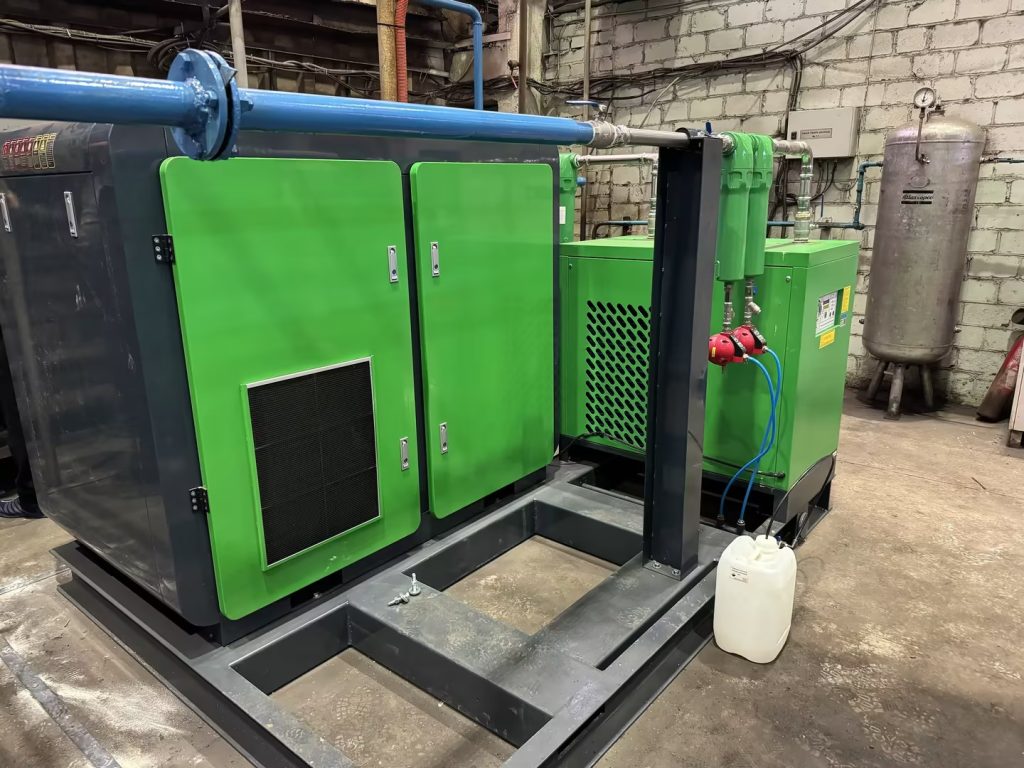Energy Efficiency in Industrial Air Compressors: How Oil-Injected Compressors Save You Money
Introduction
As industries worldwide focus on reducing energy consumption and minimizing environmental impact, oil-injected screw air compressors are gaining popularity for their energy efficiency. This article explores how oil-injected air compressors help businesses cut energy costs, lower operational expenses, and contribute to overall sustainability efforts.
Challenges of Energy Consumption in Industry
Energy Usage in Industrial Processes: Air compressors are one of the largest energy consumers in industrial settings, contributing significantly to operational costs.
The Consequences of High Energy Consumption: Inefficient compressor systems lead to unnecessary energy wastage, increasing production costs.
Energy Efficiency Advantages of Oil-Injected Screw Air Compressors
Compression Efficiency: The oil injection process improves compression efficiency by reducing internal friction, leading to lower energy consumption.
Reduced Idle Time: Oil-injected compressors are designed to match output with actual demand, eliminating unnecessary idle running and minimizing energy waste.
Energy Recovery Systems: Advanced energy recovery technologies allow compressors to convert waste heat into usable energy, further improving efficiency.
Achieving Energy-Saving Goals
System Optimization: Proper compressor configuration and system adjustments can significantly reduce energy waste.
Smart Monitoring and Adjustment: Real-time monitoring systems allow operators to optimize compressor performance continuously, ensuring energy efficiency.
Regular Maintenance: Routine maintenance ensures that compressors continue to run at optimal efficiency, preventing energy waste due to component wear.
Energy-Saving Case Studies
Textile Industry in Dubai: A Dubai-based textile manufacturer switched to SEIZE AIR’s oil-injected screw compressors, reducing energy consumption by 30% while improving operational efficiency.
Chemical Plant in Russia: A chemical factory integrated SEIZE AIR compressors into its production process, boosting energy efficiency by 20% while enhancing system stability.
Choosing the Right Energy-Efficient Compressor
Assessing Your Needs: How to select the appropriate compressor based on production requirements and environmental conditions.
Long-Term Investment Return: Although energy-efficient compressors may require a higher initial investment, their energy savings and reduced maintenance costs provide long-term financial benefits.
Conclusion
Investing in oil-injected screw air compressors offers significant energy-saving potential. With their high-efficiency operation, reduced energy consumption, and longer lifespan, these compressors help businesses lower their operational costs while contributing to sustainability goals.


 English
English
 Chine
Chine
 Russia
Russia
 France
France
 Spain
Spain
 Arab
Arab